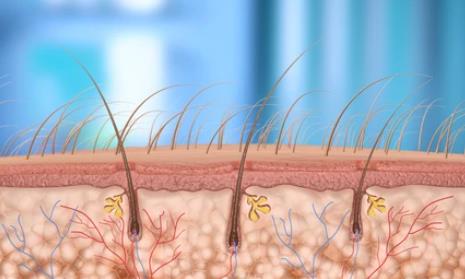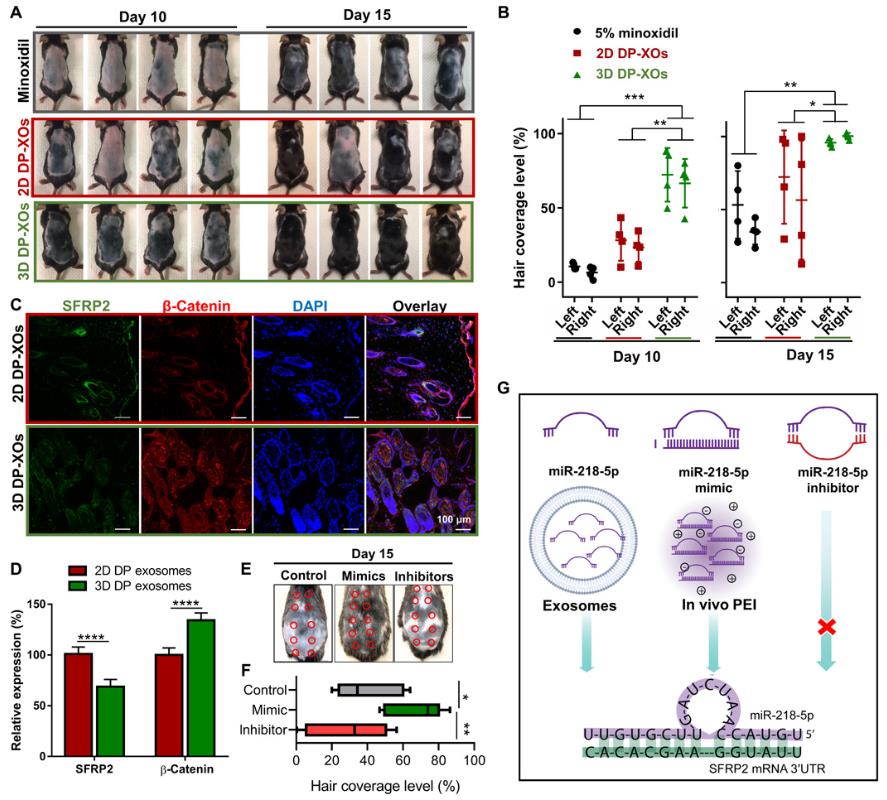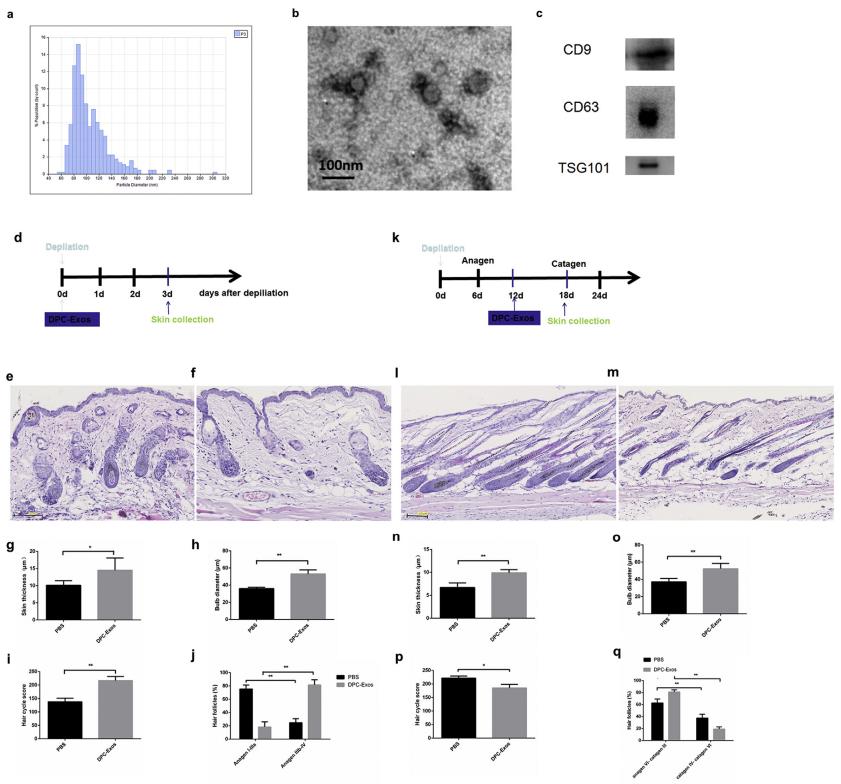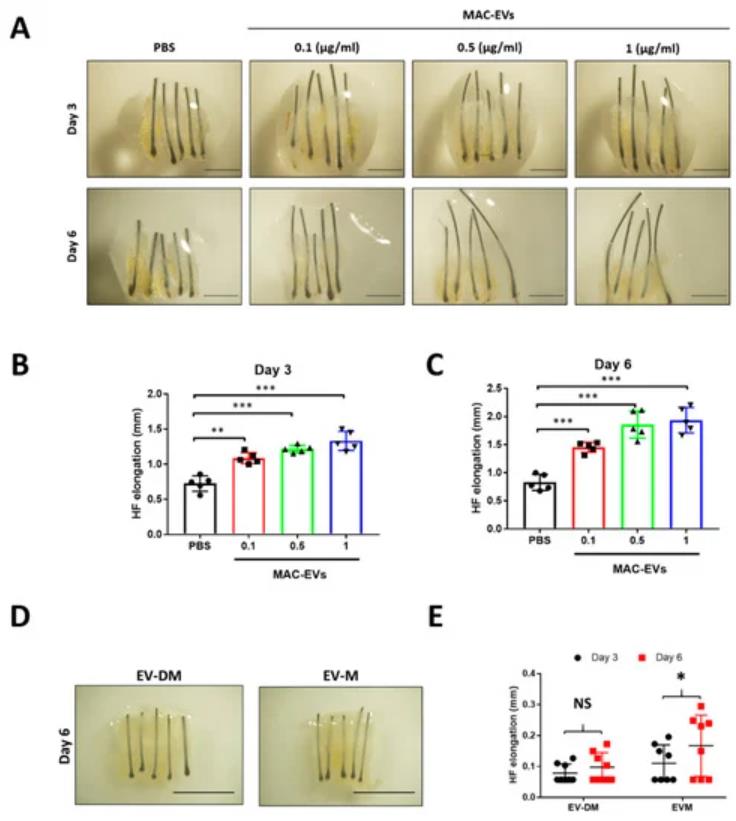Heredity, aging, and increased work and life stress may all lead to hair loss and gray hair. At the same time, hair loss affects the appearance, leads to personal image problems, and brings emotional trauma and even depression to patients.
Once hair loss occurs, it lasts for a long time. The problem of hair loss is quite complex. In addition to the well-known genetic influences, thyroid and metabolism problems, air pollution and environmental pollution, as well as psychological anxiety, etc., may all cause hair loss, which may require different solutions.
The even more frustrating reality is that although scientific researchers continue to study the root causes of hair loss, no drug has been approved to combat hair loss since 1997, and even the existing drugs have many side effects.
Hair transplantation is now the mainstream anti-hair loss solution. However, the success of hair transplantation largely depends on the number and utilization of permanent hair follicles in the donor site, which is the main bottleneck of hair transplantation.
Hair follicles are complex tiny organs. The formation and growth of hair follicles are the result of the interaction between the epithelial components of the hair follicles and the dermal components. The growth and regeneration of hair follicles are regulated by their own stem cells.
There are three main types of stem cells present in hair follicles: hair follicle stem cells, dermal papilla cells and melanocyte stem cells. Among them, dermal papilla cells and hair follicle stem cells play a very important role in the occurrence of hair follicle morphology and the hair cycle.

Based on this characteristic, scientists have turned their research direction to exosomes. At present, the clinical research role of exosomes has been reported by a large number of studies, including in the direction of hair follicle research. Studies have confirmed that exosomes can promote the recovery of mouse back hair from the resting phase to the growth phase.
Exosomes are small vesicles secreted by cells that contain various substances such as miRNA and play an important role in intercellular communication. The mechanisms of exosomes for hair growth include promoting scalp blood circulation, regulating scalp microflora, promoting hair follicle growth and reducing inflammation. By injecting exosomes into the scalp, the scalp microenvironment can be improved, promote hair growth, and improve hair health and elasticity.
In 2020, Ke Cheng's team from North Carolina State University published a research paper titled "Dermal exosomes containing miR-218-5p promote hair regeneration by regulating β-catenin signaling" in Science Advances.
This study discovered a miRNA that can promote hair regeneration—miR-218-5p. This miRNA in exosomes secreted by dermal papilla cells can effectively promote hair follicle growth and may be used to develop potential drug candidates for the treatment of hair loss and baldness.

| Cat# | Product Name | Size of Exosome Purified | Time to Complete 10 Purifications |
| PE001 | Plasma/Serum Exosome Purification Kit | 40 nm-150 nm | 15-30 minutes |
| PE002 | Urine Exosome Purification Kit | 40 nm-150 nm | 15-30 minutes |
| PE003 | Cell Culture Media Exosome Purification Kits | 40 nm-150 nm | 30-45 minutes |
| PE004 | Saliva Exosome Purification Kit | 40 nm-150 nm | 15-30 minutes |
| PE005 | Plasma/Serum Exosome Purification and RNA Isolation Mini Kit | 40 nm-150 nm | 35-40 minutes |
| PE006 | Plasma/Serum Exosome Purification and RNA Isolation Midi Kit | 40 nm-150 nm | 35-40 minutes |
| PE007 | Plasma/Serum Exosome Purification and RNA Isolation Maxi Kit | 40 nm-150 nm | 35-40 minutes |
| PE008 | Urine Exosome Purification and RNA Isolation Mini Kit | 40 nm-150 nm | 35-40 minutes |
| PE009 | Urine Exosome Purification and RNA Isolation Midi Kit | 40 nm-150 nm | 35-40 minutes |
| PE010 | Urine Exosome Purification and RNA Isolation Maxi Kit | 40 nm-150 nm | 35-40 minutes |
In 2018, Zhongfa Lu's team from Zhejiang University in China published an article titled "Regulation of hair follicle development by exosomes derived from dermal papilla cells" in Biochemical and Biophysical Research Communications. Research results show that exosomes accelerate the growth phase and delay the catagen phase of hair follicles.
The study points out that dermal papilla cells play a key role in the regulation of hair follicle growth, formation and circulation. Dermal papilla cells are thought to regulate HF growth through paracrine mechanisms, in which exosomes may play a key role.

In 2020, scientists from Kyungpook National University in South Korea published an article titled "Macrophage-Derived Extracellular Vesicle Promotes Hair Growth" in Cells, pointing out that macrophage-derived extracellular vesicles promote hair growth.
In this study, researchers analyzed the role of macrophage-derived Wnts (3a and 7b) and macrophage extracellular vesicles (MAC-EVs) in promoting hair growth. The results indicate that Wnt proteins in MAC-EV activate the Wnt/β-catenin signaling pathway, leading to the activation of transcription factors (Axin2 and Lef1). MAC-EVs significantly enhanced proliferation, migration, and levels of hair induction markers in dermal papilla cells.

| Cat# | Product Name | Size of Exosome Purified |
| EEK-001 | CD9-Capture Human Exosome ELISA Kit (Streptavidin HRP) | 96 Tests |
| EEK-002 | CD63-Capture Human Exosome ELISA Kit (Streptavidin HRP) | 96 Tests |
| EEK-003 | CD81-Capture Human Exosome ELISA Kit (Streptavidin HRP) | 96 Tests |
With the deepening of research, scientists have discovered that exosomes, as a new method, are effective and safe and can make up for the shortcomings of previous hair loss treatments on the market. Cutting-edge exosome technology is expected to bring new hope to many people suffering from hair loss.
Reference